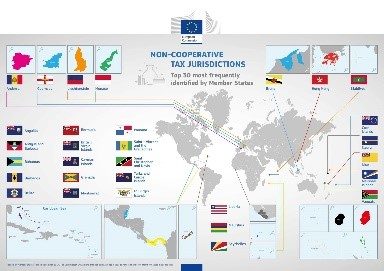[vc_row][vc_column][vc_column_text] Buying a property together without being married, is possible. But you have to plan for the worst: separation or death. Here is what you need to know to avoid difficulties.
Home, office, business, parking… Whether you are married or not, the purchase procedure is the same. However, not being married or in a civil partnership, creates difficulties for the future. French law only sets a protective framework for the purchase of a couple whose union is based on a legal contract. This is not the case for cohabitation, also known as common-law unions. As a result, it is in the buyers’ best interest to plan the legal framework they wish to apply before concluding the purchase. The question also arises at the bank level in the event of a loan: the co-borrowers will have to choose, within the framework of death insurance, the proportion that protects them individually. If one of the two persons has no income, it is preferable that the insurance cover as much as possible the death of the other partner, in order to cover the highest possible amount of the remaining monthly payments due. If both have the same or close income, the distribution can be based on parity. In all cases, this choice must be made based on the survivor’s ability to continue repaying the loan.
Co-ownership by default
Concerning the ownership of the property, in the absence of any particular clarification, the property acquired will fall under the regime of co-ownership, where each co-owner will have as much share as the others. For a couple, each has as much right to own the property as the other. However, in practice, it is possible that the cohabitants did not make an equal financial contribution. If nothing is specified at the time of purchase, the person who has paid the most money will therefore be harmed when the co-ownership ends: these rights on the property are not proportional to his/her financial participation. If the couple wants to simplify formalities, it is advisable to specify on the sales contract: the details of the contributions and the rights of each.
However, it is only at the time of the couple’s separation that they understand the importance of taking further legal steps. These can make it possible to organise, as soon as the purchase is made, the terms and conditions for leaving or keeping the co-ownership. Thus, it may be appropriate to provide for specific clauses depending on whether there is separation or death.
Co-ownership or SCI?
Co-ownership is not the only possible legal tool. Moreover, this system of co-ownership of property brings a multitude of complications in the event of conflict between people. It may be useful to find out whether it is appropriate to set up a non-trading real estate partnership (SCI). In addition to the constraints it imposes, particularly in terms of taxation, it facilitates the transfer of the property and reduces conflicts to a minimum. Each member holds shares in proportion to his/her financial contributions. They are partners in a company, no more, no less. Thereafter, they may freely sell them, in the same way as shares in unlisted companies.
Above all, the surviving cohabitant, or the one who wants to stay after a break-up, is not driven out of the property. In fact, the SCI is the full owner of the property, which it makes available. In return, it can receive rent that allows it to pay monthly loan payments, various charges and property taxes. In the event of separation, there is no obligation to transfer the shares of the SCI. This holding may generate annual financial income. Similarly, in the event of death, the surviving partner may continue to occupy the property, even if the shares have changed ownership. Here again, the latter primarily carry out an investment transaction. Later, they will be able to recover the use of the property.
Tontine for the last survivor
If the only concern of unmarried buyers is that the survivor can fully enjoy the property, there is another particular alternative: tontine. The principle is simple: whatever the amount of the contribution, it is the last survivor who becomes the sole owner. To this end, it is necessary to insert a clause to this effect in the contract recording the purchase of the property. This does not erase the tax due, but is in line with the objective pursued. In any case, buying without being married requires planning and anticipation in the event of disputes. To make the most appropriate choices, the advice of a notary is invaluable.
[/vc_column_text][/vc_column][/vc_row][vc_row][vc_column][us_sharing providers=”facebook,twitter,linkedin” type=”outlined” align=”center” color=”secondary”][/vc_column][/vc_row]


